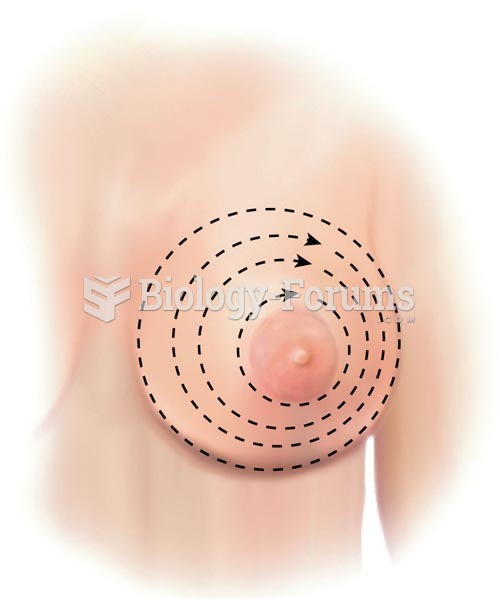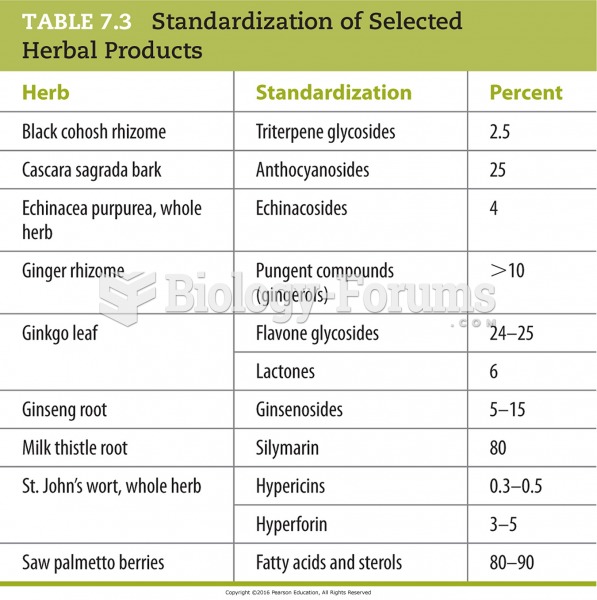|
|
|
Oxytocin is recommended only for pregnancies that have a medical reason for inducing labor (such as eclampsia) and is not recommended for elective procedures or for making the birthing process more convenient.
Excessive alcohol use costs the country approximately $235 billion every year.
In 1886, William Bates reported on the discovery of a substance produced by the adrenal gland that turned out to be epinephrine (adrenaline). In 1904, this drug was first artificially synthesized by Friedrich Stolz.
The cure for trichomoniasis is easy as long as the patient does not drink alcoholic beverages for 24 hours. Just a single dose of medication is needed to rid the body of the disease. However, without proper precautions, an individual may contract the disease repeatedly. In fact, most people develop trichomoniasis again within three months of their last treatment.
The U.S. Preventive Services Task Force recommends that all women age 65 years of age or older should be screened with bone densitometry.
 Shortly after his death, George Washington had already become myth—part Moses, part angel—in this wo
Shortly after his death, George Washington had already become myth—part Moses, part angel—in this wo
 The gaping hole in the destroyer USS Cole, in the port of Aden, Yemen, was the work of suicide bombe
The gaping hole in the destroyer USS Cole, in the port of Aden, Yemen, was the work of suicide bombe





